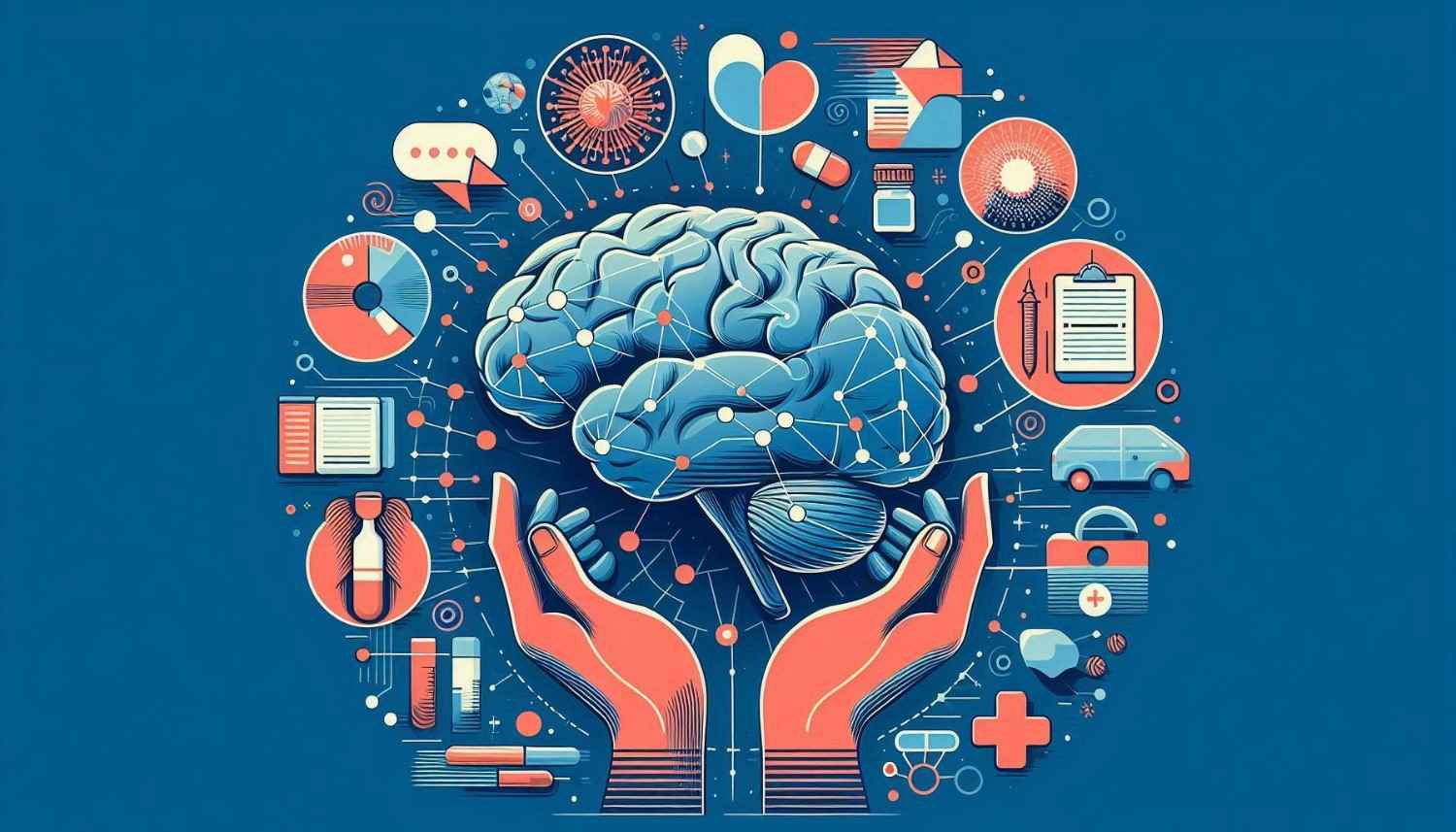Understanding Substance Misuse and Mental Health
Substance Use and Co-occurring Mental Health Issues
Substance misuse and mental health problems often go hand in hand. Many individuals turn to alcohol or drugs to cope with anxiety or depression. These substances can alter brain chemistry, affecting mood-regulating neurotransmitters like serotonin and dopamine. This complex interplay can lead to a cycle where mental health issues and substance use exacerbate each other.
The Connection Between Addiction and Mental Wellbeing
Addiction is a serious condition involving physical and psychological dependence on certain substances. It can cause changes in the brain and often requires treatment. Unfortunately, stigma can prevent people from seeking help. Genetics, stress, trauma, and environmental factors all play a role in developing substance use disorders.
Defining Addiction: Perspectives from Health Organisations
The National Institute on Drug Abuse describes addiction as a chronic, relapsing disorder characterised by compulsive behaviours despite negative consequences. They consider it a brain disorder due to its effects on reward, self-control, and stress systems.
The American Psychiatric Association defines addiction as physiological or psychological dependence on substances or behaviours like gambling.
Substance use disorders (SUDs) involve repeated use of a substance despite harmful effects. They can range from mild to severe. The Diagnostic and Statistical Manual of Mental Disorders lists 11 symptoms to help diagnose SUDs, including:
- Social or interpersonal problems linked to substance use
- Psychological or physiological issues
- Hazardous use
- Neglecting life roles
- Cravings
- Using large amounts for extended periods
- Withdrawal symptoms
- Tolerance
- Failed attempts to quit
- Excessive time spent using
- Giving up other activities to use substances
Substances that can lead to addiction include:
- Alcohol
- Caffeine
- Cannabis
- Hallucinogens
- Inhalants
- Opioids
- Sedatives
- Stimulants
- Tobacco
Gambling disorder has also been recognised as an addiction in recent years, with similar urges and cravings to substance use.
Common Questions About Addiction and Mental Health
How Are Substance Use Disorders Treated?
Treatment for substance use disorders often involves a mix of approaches. These may include:
- Counselling and therapy
- Support groups
- Medication
- Inpatient rehabilitation
- Outpatient programmes
The exact treatment plan varies based on the individual’s needs and the substance involved. Cognitive-behavioural therapy is often used to help change harmful thought patterns and behaviours.
What Defines Addiction as a Mental Health Issue?
Addiction is considered a mental health disorder because it:
- Changes brain structure and function
- Impacts behaviour and decision-making
- Causes persistent cravings and compulsions
- Often co-occurs with other mental health conditions
Like other mental illnesses, addiction involves changes to the brain that make it difficult to stop using substances despite negative consequences.
What Are the Main Factors Behind Addictive Behaviours?
Several factors can contribute to the development of addiction:
- Genetic predisposition
- Environmental influences
- Trauma or stress
- Co-existing mental health disorders
- Brain chemistry changes from substance use
These factors often interact in complex ways, making some people more vulnerable to addiction than others.
How Is Alcohol Dependence Classified in Mental Health Terms?
Alcohol dependence is classified as a type of substance use disorder in mental health diagnostics. It is characterised by:
- Loss of control over alcohol consumption
- Continued use despite negative consequences
- Development of tolerance
- Withdrawal symptoms when not drinking
Like other addictions, alcohol dependence alters brain function and can significantly impact mental and physical health.
In What Ways Is Addiction Seen as a Coping Mechanism?
Addiction often develops as a way to cope with:
- Emotional pain or trauma
- Mental health symptoms
- Stress or anxiety
- Low self-esteem
- Social difficulties
While substance use may provide temporary relief, it ultimately worsens these issues and creates new problems.
How Do Mental Health Conditions Affect Addiction Risk?
Mental health conditions can increase the risk of addiction in several ways:
- People may use substances to self-medicate symptoms
- Some mental illnesses affect impulse control and decision-making
- Shared risk factors (e.g., genetics, trauma) contribute to both
- Mental health symptoms can make recovery more challenging
This relationship is often referred to as a dual diagnosis or co-occurring disorders.
Which Psychological Therapies Are Effective for Treating Addictions?
Several evidence-based therapies have shown effectiveness in treating addictions:
- Cognitive-behavioural therapy (CBT)
- Motivational interviewing
- Dialectical behaviour therapy (DBT)
- Contingency management
- Family therapy
These approaches help individuals change thought patterns, develop coping skills, and address underlying issues contributing to addiction.
Where to Seek Assistance for Substance Use and Mental Health Issues
Individuals grappling with substance use and mental health concerns have several options for finding help. In America Substance Abuse and Mental Health Services Administration (SAMHSA) offers a National Helpline at 1-800-662-HELP (4357). This service provides round-the-clock support and referrals to local treatment facilities.
For those in South Africa
Additional support is available through various channels:
- Mental health resources: South African Depression and Anxiety Group (SADAG) 24-hour Substance Abuse Helpline on 0800 12 13 14.
- State rehabs: South African National Council on Alcoholism and Drug Dependence (SANCA) on 011 892 3829 or send a WhatsApp message to 076 535 1701.
- Crisis support: Changes Rehab will help you find appropriate help.
- Western Cape rehabs: Call for help
It’s crucial to note that in life-threatening situations, ringing 999 for emergency services is the appropriate course of action.
Co-occurring disorders can be complex, often involving mental health conditions such as anxiety, depression, or bipolar disorder alongside substance use issues. Seeking professional help is a vital step towards recovery and improved well-being.







